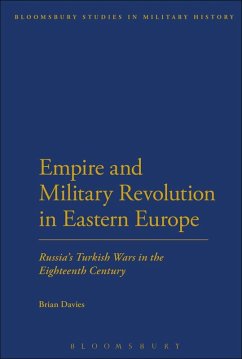In terms of resource mobilization and devastation the wars between Russia, the Crimean Khanate and the Ottoman Empire were some of the largest of the 18th century, and had enormous consequences for the balance of power in Eastern Europe.
Brian Davies examines how these conflicts characterized the course of Russian military development in response to Ottoman and Crimean Tatar threats and to determine under what circumstances and in what ways Russian military power experienced a "revolution" awarding it clear preponderance over the Ottoman-Crimean system.
A central part of Davies' argument is that identifying and explaining a Military Revolution must involve examining the role of factors not purely military. One must look not only at new military technology, new force and command structure, new tactical thinking, and new recruitment and military finance practices but also consider the impact of larger demographic, economic, and sociopolitical changes.
Brian Davies examines how these conflicts characterized the course of Russian military development in response to Ottoman and Crimean Tatar threats and to determine under what circumstances and in what ways Russian military power experienced a "revolution" awarding it clear preponderance over the Ottoman-Crimean system.
A central part of Davies' argument is that identifying and explaining a Military Revolution must involve examining the role of factors not purely military. One must look not only at new military technology, new force and command structure, new tactical thinking, and new recruitment and military finance practices but also consider the impact of larger demographic, economic, and sociopolitical changes.









